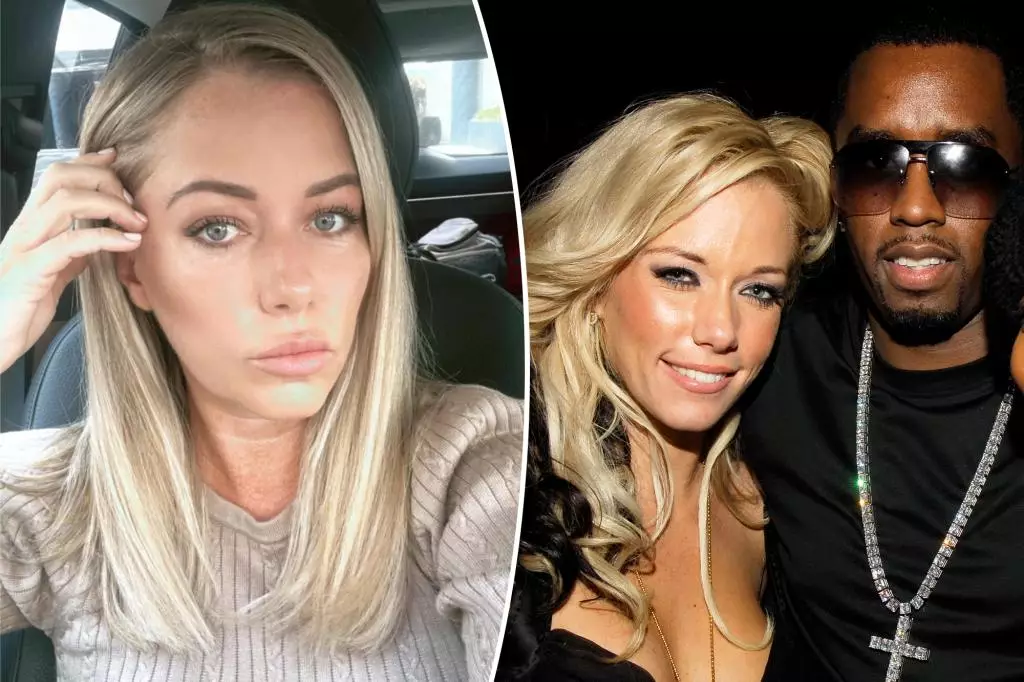In the backdrop of the entertainment industry, where glamour and scandal intertwine, Kendra Wilkinson has found herself navigating a minefield of public scrutiny. Recent statements made by the former Playboy star, in connection to Sean “Diddy” Combs amid his serious legal troubles, highlight the complexities of celebrity life. Following her appearances on “The Kylie & Jackie O Show” that enthused about the vibrancy of parties she attended in her youth, Wilkinson faced backlash as Diddy grappled with severe allegations, including sex trafficking. This juxtaposition invites us to explore not only the ramifications of celebrity culture but also the personal narratives wrapped within it.
Wilkinson’s Clarification and Public Perception
After experiencing a wave of criticism, Wilkinson took to Instagram Threads to clarify her statements, asserting that her words were taken out of context. “I was just answering questions about Playboy Mansion parties,” she explained, emphasizing that any fun she alluded to happened in a different time when she was heavily influenced by the party-oriented culture surrounding the Playboy universe. This need to clarify speaks volumes about the volatility of public perception in this digital age, where a single remark can spiral into a broader narrative regarding one’s character.
Moreover, her reflection on the parties illustrates a common theme within the entertainment sphere—where nostalgia for lavish experiences can clash violently with present realities. As she expressed, while she had “great times” at Diddy’s gatherings, the underlying implications of such experiences cannot be ignored. The reality is that her memories are now intertwined with the serious accusations aimed at Combs, leaving her and the audience to grapple with the complexity of her past.
Throughout her discourse, Wilkinson was candid about her experiences, acknowledging that while her personal interactions at these events were benign, darker occurrences may have transpired behind the scenes. “I’m not saying that something bad didn’t happen,” she clarified, evoking a stark reminder that the luxury and privilege of such gatherings can often mask underlying exploitation and harm. This admission raises essential questions about personal accountability and the moral responsibilities that come with being intertwined in such a glittering, yet potentially murky world.
The response from the public indicates a growing awareness of the systemic issues surrounding celebrity culture. Social media audiences are more vocal than ever regarding their distaste for the objectification and exploitation often inherent in these elite circles. Wilkinson’s attempts to separate her joyous memories from the sinister undertones associated with Combs resonate with a generation familiar with the #MeToo movement’s implications.
Diddy’s Legal Troubles: A Dark Turn
As the narrative shifts back to Combs, the gravity of the situation unfolds further. The allegations against him are not merely sensational but depict a troubling pattern of behavior that, if proven, could reflect deeply ingrained issues within the music industry and beyond. The evidence gathered during FBI raids—objects and conduct tied explicitly to overt sexual exploitation—frames Combs in a light that starkly contrasts with the extravagant lifestyle he once flaunted.
An indictment detailing racketeering conspiracy and sex trafficking has turned the focus on the dark underbelly of fame that is often ignored amid the glitz of Hollywood. As Diddy sits in a Brooklyn detention center awaiting trial, the conversations surrounding celebrity culture are pivoting from admiration to critical examination. The narrative has become not just about one individual but also about the enabling conditions that allow such behaviors to persist unchecked.
The situation surrounding Kendra Wilkinson and Sean “Diddy” Combs is emblematic of a shifting paradigm in how society views celebrity culture. As audiences become more attuned to issues of consent, respect, and dignity, the allure of star-studded parties loses its luster when overshadowed by scandal. Wilkinson’s attempts to navigate her past amidst Diddy’s accusations serve as a reminder that fun and frivolity can often come at a cost, urging a broader reflection on the ethics of the environments in which celebrities operate. As this narrative develops, it underscores the necessity of accountability and the importance of voicing truths, however uncomfortable they may be.

